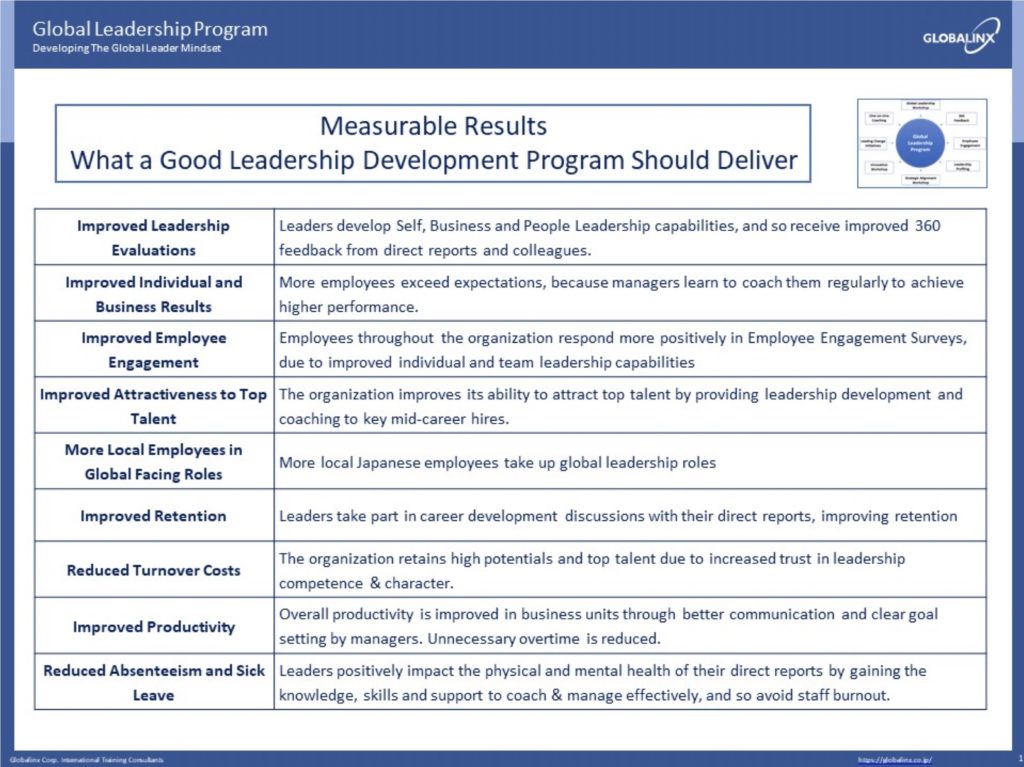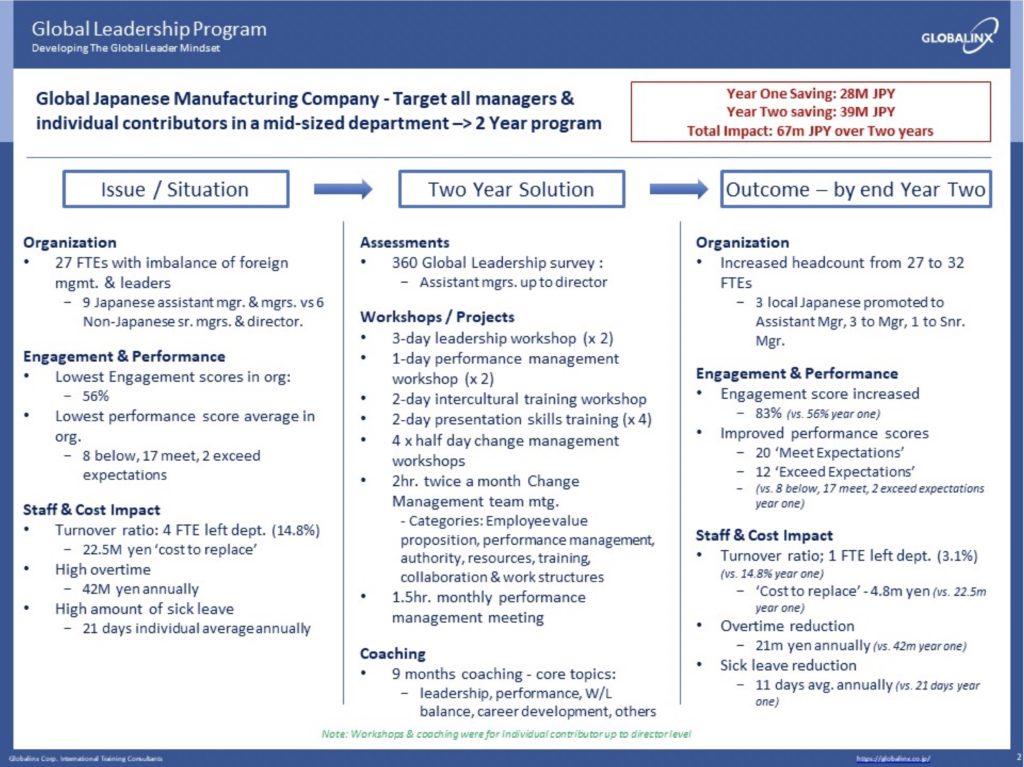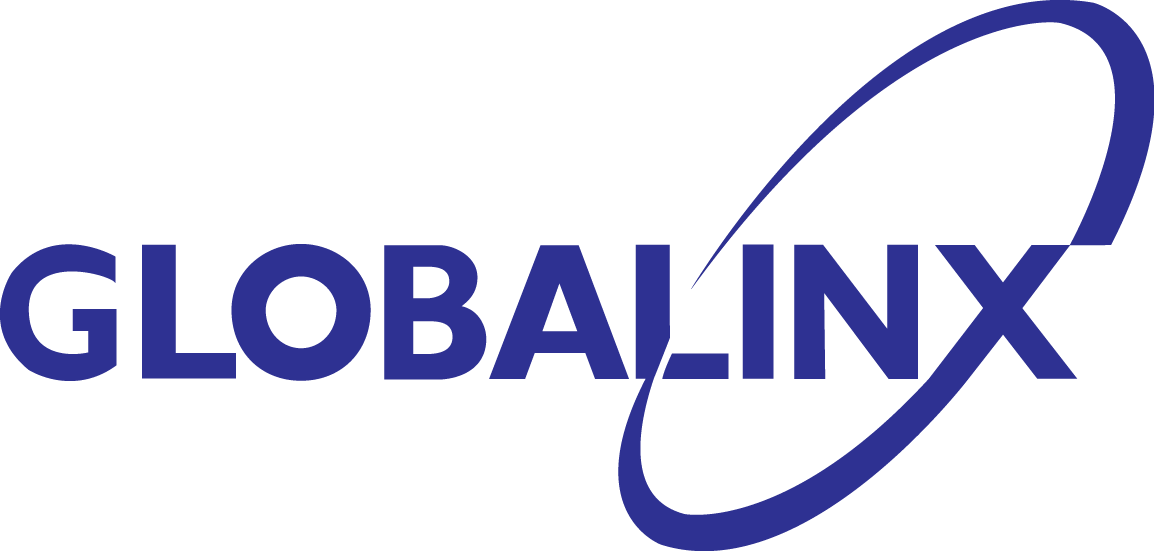Measuring Leadership Program Outcomes
How can you measure the outcome of your leadership program? The usual methods, such as improvements in 360 feedback, are a good way. However, there are some other measures you can use, especially if you take into consideration what most CEOs want – a Highly-Engaged & High-Performing Organization that Delivers Extraordinary Results.
One of our clients (see case study below) was able to save 67M JPY over two years by reducing overtime, sick leave, and unwanted turnover – while their Engagement scores increased from 56% to 83%. Interestingly, although the management team 360 scores did improve, they were not nearly as dramatic as the other outcomes. BTW, the 67M JPY did not include the intangible benefits that other departments in the company gained from the improved departmental efficiency and individual performance from our client (a mid-sized dept. in the company).
What a Good Leadership Program Should Deliver

Case Study
The client is one of Japan’s most well-known and respected manufacturers. A mid-sized department in the company was experiencing challenges related to effective teamwork and productivity within its multi-cultural organization. In addition, although employee engagement scores were not low by external benchmarks, they were low compared to other divisions in the company.
The head of department asked Globalinx to implement a comprehensive Leadership Development program, covering all manager and individual contributors, with the goal of creating visible improvements in all areas. This then morphed into an HRBP-style organizational development program.
The table below gives an overview of the issues at the start of the program, the solution implemented, and the results over two years.

Thanks for reading!

